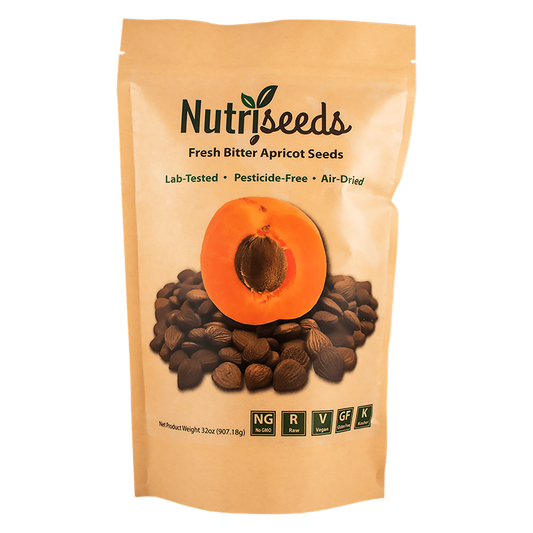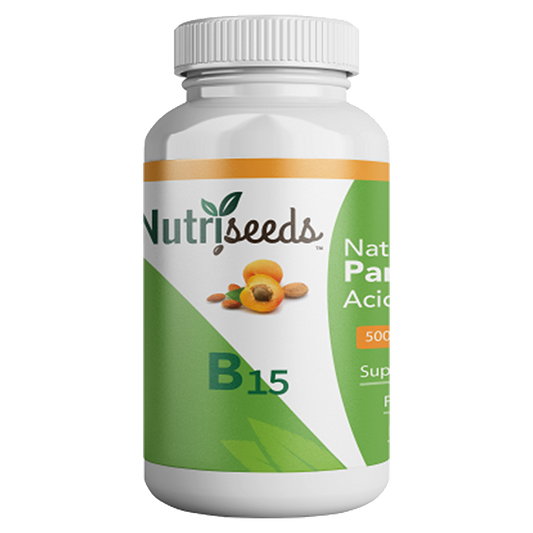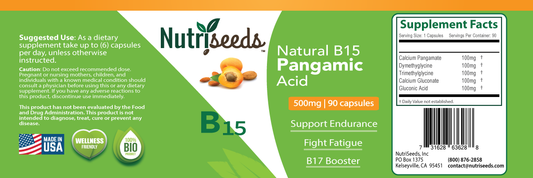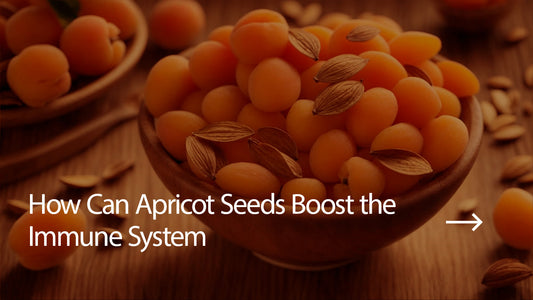
Apricot Seeds vs. Almonds: A Nutritional Face-Off
Table of Contents
- The Nutritional Profiles of Apricot Seeds and Almonds
- Comparing Vitamin and Mineral Content in Each Seed
- Exploring Protein and Fiber: Which Seed Leads?
- Apricot Seeds and Almonds on the Fat Spectrum
- Antioxidant Levels: A Battle for Supremacy
- Almonds and Apricot Seeds: Caloric Impact Face-Off
- Heart Health Benefits of Apricot Seeds and Almonds
- The Role of Apricot Seeds and Almonds in Weight Management
- Possible Risks and Concerns in Apricot Seeds Consumption
- Nutritional Profiles
- Potential Health Benefits
- Possible Concerns
- Which one is better in loosing a Obesity
- Conclusion
- Frequently Asked Questions
- Which seed, apricot seeds or almonds, has higher levels of vitamins and minerals?
- Which seed, apricot seeds or almonds, is a better source of protein and dietary fiber?
- Is Almond Butter and almond milk is good for health?
- Which seed, apricot seeds or almonds, contains greater antioxidant levels?
- Which one is best apricot seeds or almonds in flour?
- Conclusion
Embarking on a journey through the realm of nutrition often presents us with a delightful array of choices, each boasting their own unique benefits and intriguing mysteries.
Today, I invite you to join me as we cast a discerning eye over two nutritional powerhouses: apricot seeds and almonds.
We'll unravel their nutrient-dense profiles, dissect the nuances of their vitamin and mineral contents, and weigh their contributions to heart health and weight management.
Keep reading as we embark on a fact-filled exploration to uncover which of these two might claim the title in this nutritional face-off.
The Nutritional Profiles of Apricot Seeds and Almonds
Embarking on a journey to optimize our health, I find myself intrigued by the unique, often overlooked nutritional contributions of apricot seeds and the lauded, globally-consumed almonds.
Both hail from the bountiful Prunus genus and whisper legends of health benefits in each bite, yet their constituent profiles suggest a fascinating disparity.
As I gear up to scrutinize the nutrient content locked within apricot seeds, a curiosity burns: How do they measure up against the might of almond nutrients?
The challenge is captivating, and I'm prepared to sift through the data, unraveling the layers of nutrition each offers.
Join me as we unlock the doors to a veritable treasure trove of vitamins, minerals, and bioactive compounds, all hidden beneath their modest exteriors.
Examining Apricot Seed Nutrient Content
Discover Nutriseeds and you'll find that beyond amygdalin, apricot kernels are rich in nutrients like vitamin B17, also known as laetrile. Venturing to incorporate fresh apricot seed powder into my diet, the goal remained clear: to augment my diet with their nutrients without overlooking the importance of moderation given the potential toxicity of consuming apricot seeds in large quantities.
Assessing Almond Nutrient Composition
Turning my focus towards almonds, their robust nutrition profile commands attention. These seeds, which most consider nuts, pack a substantial punch with high levels of vitamin E, an antioxidant essential for maintaining healthy blood and skin.
My research uncovers almonds as being exceedingly heart-friendly; their richness in monounsaturated fats aids in managing cholesterol levels, subsequently curbing the risk of cardiovascular disease. On top of that, almonds offer a reliable source of protein, dietary fiber, and healthy fats, all pivotal components for weight management and metabolic health.
Comparing Vitamin and Mineral Content in Each Seed
On the trail of a healthier lifestyle, my gaze now fixates on pitting apricot seeds against almonds in a nutritional showdown.
I want to dissect the salient details that distinguish their vitamin E compositions, an antioxidant promising to shield our cells from the nefarious clutch of oxidative stress.
Then, I'll delve into their mineral density, scrutinizing the elements they hold and what this implies for our diets.
This exploration is not about declaring an outright winner but rather celebrating the unique offerings in each.
As I navigate the complex nutrition landscape, allow me to share the subtle yet impactful variances between these two potent seeds.
Vitamin E Showdown: Apricot Seeds vs. Almonds
At the heart of this nutritional face-off, vitamin E in almonds emerges as a star player, renowned for its high antioxidant properties that can bolster our body’s defense against heart disease and bolster overall skin health. When I pit almonds against apricot seeds, it's clear that almonds offer a more substantial vitamin E contribution, underpinning their status as a staple in heart-healthy and skin-nourishing diets.
While exploring apricot seed capsules, their vitamin E levels are more modest by comparison, yet they don't fall short in nutritional value, as they present a rich tapestry of other health-promoting components. The foray into the nutrient profiles of these two seeds solidifies my understanding that while almonds may take the lead in vitamin E content, apricot seeds present an eclectic mix of vitamins and compounds offering their unique health benefits.
The Mineral Matchup: Key Differences to Note
Diving deeper into the mineral spectrum, almonds are a wellspring of essential nutrients, including magnesium, which supports nerve function and muscle relaxation. They are treasure troves of calcium, critical for bone health, and provide copious amounts of phosphorus, crucial for cellular repair and maintenance.
Conversely, apricot seeds reflect a juxtaposition in the mineral hierarchy, with notable levels of iron that play a significant role in oxygen transport within the bloodstream. Their magnesium content, while present, is overshadowed by the impressive scores seen in almonds, highlighting the rich tapestry of mineral diversity each seed exhibits.
Exploring Protein and Fiber: Which Seed Leads?
My examination of the nutritional profiles of apricot seeds and almonds continues with a deep dive into the realms of protein and fiber, two essential factors influencing our body’s health and well-being.
Understanding how each seed contributes to protein intake and the intricate role fiber plays in our digestive health is paramount as we strive for a balanced diet.
With an inquisitive mind, I approach the impending discussion, eager to discern whether the revered almond or the understated apricot seed takes precedence in these crucial nutritional dimensions.
Protein Power: Which Seed Packs More?
Unearthing the protein potential within these nutritive gems, I find almonds boast a robust profile, esteemed for their protein content which is fundamental for tissue repair and muscle growth. They are lauded in nutritional circles for being a plant-based protein powerhouse, an attribute that can be pivotal for those eschewing animal products.
Apricot seeds, while often shadowed by their almond cousins in discussions of protein, still offer a noteworthy helping of this vital macronutrient. It's fascinating to observe the modest, yet significant contribution they make towards meeting our daily protein needs, a fact that often surprises those new to the nuances of seed nutrition.
Fiber Facts: Breaking Down the Benefits
As I sift through the fiber content of these seeds, I'm encouraged by the promising dietary fiber found in almonds. This indispensable fiber offers a myriad of benefits for our gastrointestinal tract, not only by promoting a feeling of fullness that can aid in weight control but also by fostering a thriving gut microbiota, essential for a resilient digestive system.
My exploration into apricot seeds reveals a slightly different story; their dietary fiber content, while valuable, doesn't quite reach the levels presented by almonds. Nevertheless, this fiber plays an essential role in maintaining regularity and contributing to a healthy diet - a testament to the fact that even small amounts can have a positive impact on our nutrition.
Apricot Seeds and Almonds on the Fat Spectrum
Now, let's pivot our discussion to the fat content within apricot seeds and almonds, an aspect undeniably critical in evaluating their roles in a health-conscious diet.
Amidst the spectrum of fats, each has its narrative, embodying varying types and benefits that either enhance or detract from their nutritional value.
Crucially, understanding the intricacies of fat—their types, their effects, and the presence of coveted omega fatty acids—will shed light on how these seeds fit into our daily nutritional regime.
Venturing into this comparison, I aim to untangle the threads of how each seed contributes to a well-rounded, heart-healthy diet, underscoring their respective profiles in the broader narrative of beneficial fats.
Breaking Down the Fat: Types and Benefits
Investigating the realm of fats in apricot seeds and almonds, I immediately notice the stark contrast. Apricot seeds carry a higher saturated fat content, which calls for conscious consumption given its association with cardiovascular risk factors. Yet, they also contain Beneficial Monounsaturated Fats, akin to those in olive oil, which can promote heart health.
Almonds are predominantly rich in the heart-healthy monounsaturated and polyunsaturated fats, including the essential fatty acids known to aid in reducing inflammation and supporting overall cardiovascular health. The presence of these fats in almonds secures their position as a nutrient-dense snack, capable of imparting vital health benefits when integrated into a balanced diet.
Omega Fatty Acids: Comparing the Sources
My exploration into the world of fats leads me to the coveted omega fatty acids, where almonds distinctly stand out with their omega-9 content – oleic acid – known for its cardiovascular benefits. This fatty acid is the same health-promoting lipid found in olive oil and is instrumental in supporting a heart-healthy diet.
In contrast, apricot seeds do not boast the same levels of omega fatty acids as almonds, yet they possess a unique profile of fats that can complement a varied diet. While the focus on omega fatty acids may spotlight almonds, I recognize the importance of a diverse intake of fats, and apricot seeds contribute to this variety.
Antioxidant Levels: A Battle for Supremacy
Embarking further into this nutritional quest, my attention shifts to antioxidants, those remarkable agents of cellular defense.
Apricot seeds and almonds stand as sentinels against the relentless tide of oxidative stress, threats that incessantly pressure our biological fortitude.
Antioxidant analysis not only reveals the potency of these seeds’ defense mechanisms but also offers a scientific tableau upon which these competitors can be contrasted.
I am about to probe the ORAC values, a system that measures the antioxidant capacity of foods, as a means to quantitatively gauge these two contenders.
Prepared to delve into the arena where these antioxidants battle for supremacy, I stand ready to dissect, discern, and draw insights from the ensuing fray.
Antioxidant Analysis: Natural Defense Enhancers
Wading into the nuanced world of antioxidant power, I quickly recognize how apricot seeds are more than a mere source of vitamin B17. Their composition includes a variety of antioxidant compounds that could play a role in diminishing oxidative stress, the relentless force implicated in aging and chronic diseases.
Almonds, on the other hand, have built a reputation on their vitamin E stronghold, an antioxidant known to combat free radicals with vigor. Integrating almonds into your diet can significantly contribute to bolstering your body's arsenal against the harm caused by environmental and metabolic stressors.
The ORAC Value Comparison: Scoring the Fighters
Turning my attention to the ORAC values, which reflect antioxidant capacity, I'm keen to understand how apricot seeds and almonds hold up under this scientific magnifying glass. Apricot seeds, though lesser-known for their antioxidant contributions, possess a complex array of compounds ready to be quantified and their capacity for cellular defense recognized.
Meanwhile, almonds carry a heavy-weight title in the ORAC rankings, commanding respect for their substantial vitamin E content that has long been associated with combating oxidative damage. This comparison is not merely numbers on a scale, but a measure of how each can contribute to a defense strategy within our daily nutrition regimen.
Almonds and Apricot Seeds: Caloric Impact Face-Off
As I delve into the intricate dance of calories and nutritional content, a pressing question surfaces: between apricot seeds and almonds, which harbors fewer calories?
This is not a mere quest for the lowest number, but an informed search for balance within a healthy diet.
The effect of these calorie counts on our daily energy intake is pivotal to understand, especially for those of us who mindfully track our consumption with the intention of managing weight or improving overall health.
Ready to juxtapose these nutrient-dense foods, I'm set to scrutinize their caloric profiles and assess the implications for our caloric ledger.
Low-Calorie Contender: Which Is Lighter?
My quest for a low-calorie powerhouse leads me to meticulously compare the caloric impact of apricot seeds and almonds. Each has its merits, yet almonds are generally higher in calories, due primarily to their denser fat content, making apricot seeds the leaner option on the calorie scale.
However, while apricot seeds may take the crown for fewer calories per serving, it's essential to wield this knowledge with care, knowing the quantity and quality of calorie intake should harmonize with the broader spectrum of my diet and health goals.
Analyzing the Impact on Daily Caloric Intake
In addressing the impact on daily caloric intake, it's crucial to note how integrating almonds or apricot seeds into one’s diet requires mindful consideration of their caloric densities. Almonds, though more calorie-rich, offer a satiating mix of fats, proteins, and fibers that may help regulate energy intake throughout the day, potentially curbing the urge for additional snacking.
Contrastingly, incorporating apricot seeds as a part of my daily regimen provides a lower calorie addition, which is particularly advantageous for those closely monitoring their calorie budgets. Despite their lower calorie count, the paramount factor remains the balance of one's overall nutritional intake, ensuring each calorie is packed with health-promoting nutrients.
Heart Health Benefits of Apricot Seeds and Almonds
As I venture deeper into my analysis of apricot seeds and almonds, my focus narrows on a pressing concern: the management of heart health.
Each seed whispers its promises, carrying with them the secrets to potentially managing cholesterol and blood pressure—two critical facets of cardiovascular wellness.
With an understanding of how crucial these elements are to maintaining a robust heart, I'm eager to uncover which of these nutrient-laden options might best align with a heart-healthy diet.
Without a doubt, the significance of this exploration resonates with importance, knowing the choices we make today weave into the fabric of our health tomorrow.
Cholesterol Control Capabilities of Each Seed
Investigating the cholesterol control capabilities within apricot seeds, I was intrigued by their unique fatty acid composition. The blend of unsaturated fats they contain, particularly the monounsaturated types, may lean in favor of a cholesterol-lowering diet, which is compelling for someone attentive to cardiovascular metrics.
Almonds, on the other hand, have been a subject of numerous studies in relation to heart health, consistently showing an affinity to improve lipid profiles. Their rich content of vitamin E and monounsaturated fats grants almonds a reputable position in the realm of foods that support the management of cholesterol levels effectively.
The Seed That Supports Blood Pressure Management
Moving the lens towards blood pressure management, almonds captivate my nutrition-focused mind with their significant magnesium content - a mineral applauded for its blood pressure-lowering properties. This revelation situates almonds as not just a heart-friendly snack but as an ally in the nuanced dance of cardiovascular maintenance.
While apricot seeds don't bathe in the same limelight for their blood pressure benefits as almonds do, my intrigue isn't dashed; the seeds' diverse nutrient mix, particularly potassium, plays an understated role in sustaining harmonious blood pressure levels. Acknowledging this, apricot seeds assume their place as a worthwhile, albeit quieter, contributor to a blood pressure-conscious diet.
The Role of Apricot Seeds and Almonds in Weight Management
As I embark on a crucial component of my wellness expedition, scrutinizing how apricot seeds and almonds influence weight management becomes a central theme.
These nutritional jewels offer more than mere sustenance; they play a pivotal role in sating hunger and recalibrating metabolism, two key factors interwoven with weight control.
I stand at the threshold of discovering which seed sustains satiety longer, ensuring I feel fuller and potentially aiding in weight loss efforts.
Likewise, it intrigues me to unravel the role each plays in metabolic efficiency, ready to compare their reciprocal effects on this critical bodily function.
Which Seed Can Help You Feel Fuller Longer?
My personal journey into the satiating effects of seeds piqued my curiosity about the varying levels of dietary fiber and protein in apricot seeds and almonds. It's the combination of these nutrients that holds the key to feeling full, and in my experience, almonds—with their higher fiber and protein content—seem to provide a more prolonged sense of satiety compared to apricot seeds.
Focusing solely on satiety, almonds appear to be the superior choice. Their dense nutritional payload seems to stave off hunger more effectively, which can be pivotal for those of us actively seeking to manage weight and caloric intake throughout the day.
The Effect on Metabolism: Comparing the Benefits
In my quest to discern effects on metabolism, I note that almonds, with their rich blend of healthy fats, proteins, and fibers, may increase energy expenditure. This synergy of nutrients can stimulate the body's metabolic rate, potentially transforming almonds into a metabolic booster in one's diet.
Apricot seeds, on the other hand, add intrigue to the metabolic narrative with their modest protein and fiber content. Though they may not compare to almonds in terms of direct metabolic impact, their unique composition may still positively influence metabolic pathways, supporting overall metabolic health.
Possible Risks and Concerns in Apricot Seeds Consumption
In my diligent exploration of nutrition, I've shared with you the myriad of vitamins, minerals, and health benefits nestled within apricot seeds and almonds.
Leveraging the knowledge gained, I must pivot our focus toward the possible risks underlying apricot seed consumption.
It is crucial that I underscore the amygdalin content, a component that raises significant safety concerns due to its potential toxicity.
Understanding the delicate balance required to reap the benefits while mitigating risks is imperative.
Mindfully navigating the intricacies of amygdalin and adhering to expert recommendations for safe consumption levels will guide us in harmonizing the virtues of apricot seeds with the virtues of vigilant, informed dietary choices.
Nutritional Profiles
Carbohydrates
- Apricot seeds contain about 5 grams of carbohydrates per 100 grams, mostly in the form of fiber.
- Almonds contain around 21 grams of carbs per 100 grams, including 12 grams of fiber.
Protein
- Apricot seeds have about 20 grams of protein per 100 grams.
- Almonds contain 21 grams of protein per 100 grams.
Fat
- The fat in apricot seeds comes mostly from oleic and linoleic acids. Apricot seeds contain about 51 grams of fat per 100 grams.
- The fat in almonds is primarily monounsaturated fat, including oleic acid. Almonds contain around 50 grams of fat per 100 grams.
Vitamins and Minerals
- Apricot seeds are high in vitamin B17, niacin, and contain some vitamin A, C, and E. They also contain minerals like phosphorus, magnesium, and potassium.
- Almonds are a great source of vitamin E, magnesium, manganese, copper, and phosphorus. They also contain some calcium, iron, zinc, selenium, and B vitamins.
Potential Health Benefits
Apricot Seeds
- May support immune system function
- Contain antioxidant compounds that protect cells
- High in fiber to promote digestive health
Almonds
- Rich in antioxidants to reduce inflammation and oxidative stress
- May improve blood sugar control and insulin sensitivity
- High in monounsaturated fats linked to lower LDL cholesterol
- Contain nutrients for bone, brain, heart, and skin health
Possible Concerns
Almonds
- High in calories and fats, so portion control is important
- Contain phytic acid, which may inhibit mineral absorption
- Tree nut allergy is possible for sensitive individuals
Which one is better in loosing a Obesity
For weight loss and obesity management, there are a few reasons why almonds may be a better choice compared to apricot seeds:
- Almonds are lower in carbohydrates and calories - An ounce of almonds (about 23 nuts) contains 6g net carbs and 163 calories, while apricot seeds contain nearly double the carbs and calories per serving. This makes almonds more effective for controlling calorie intake.
- Almonds contain more protein and fiber - With 6g of protein and 4g of fiber per ounce, almonds are more filling and satiating. This can prevent overeating and regulate appetite.
- Almonds have healthy fats - They contain more monounsaturated and polyunsaturated fats which may increase fat burning and speed the metabolism over less healthy fats.
- Almonds support blood sugar control - Key for weight management. Their fiber, protein, and fat blunt blood sugar spikes. Apricot seeds don't have this benefit.
So for weight loss purposes, almonds are the better choice. But apricot seeds can still be included in moderation as part of a healthy diet plan. Focusing on calorie deficit and lifestyle factors remains most important for obesity management.
Conclusion
Both apricot seeds and almonds offer important nutrients and health benefits. However, almonds may be the safer choice overall, as apricot seeds can pose risks when consumed in excess. Moderation and variety are key when incorporating these nuts into a healthy diet. Speak to your healthcare provider to see if either could be a good addition to your nutritional regimen.
Frequently Asked Questions
Which seed, apricot seeds or almonds, has higher levels of vitamins and minerals?
Naturally, this inquiry piqued my interest and led me to compare nutritional profiles, discovering that almonds typically provide a richer blend of vitamins and minerals than apricot seeds. However, apricot seeds boast a unique composition, including natural amygdalin extract, potentially offering distinctive health benefits when consumed.
Which seed, apricot seeds or almonds, is a better source of protein and dietary fiber?
When discussing protein and dietary fiber, almonds emerge as a superior source, offering a robust nutritional profile with higher protein and dietary fiber content compared to apricot seeds. While apricot seeds do provide these nutrients, the concentration is lesser than almonds, making the latter a more nutrient-dense option for those looking to enhance their diet.
Is Almond Butter and almond milk is good for health?
Yes, both almond butter and almond milk can be healthy additions to one's diet in moderation. Almond butter provides monounsaturated fats, vitamin E, magnesium, antioxidants, protein and fiber, which may help lower cholesterol, control blood sugar, and reduce disease risk. Almond milk is naturally low in calories and carbs, yet high in vitamin E and bone-strengthening calcium. It's also dairy-free, making it a good option for those avoiding or allergic to dairy. The wholesome fats, vitamins and minerals in both almond butter and almond milk can contribute to a nutritious diet and also good in taste. However, it's still important to be mindful of portion sizes as they are calorie-dense. Enjoying them as part of an overall balanced diet can provide health benefits.
Which seed, apricot seeds or almonds, contains greater antioxidant levels?
While both apricot kernels and almonds are packed with antioxidants, almonds often come out on top due to their higher concentrations of vitamin E, riboflavin, and manganese, which are all known for their antioxidant properties. but whether this confers a significant antioxidant advantage is something that's less clear and remains subject to ongoing research.
Which one is best apricot seeds or almonds in flour?
When it comes to using apricot seeds or almonds to make flour, almond flour is the better option. Almond flour has a milder flavor that works well in more recipes, and it contains more protein and healthy fats compared to apricot seed flour. Additionally, almond flour is more affordable and widely available. The lighter texture and lower carbohydrate content of almond flour also makes it preferable for most baking needs.
Conclusion
In our nutritional face-off between apricot seeds and almonds, both present unique health benefits critical for a balanced diet.
Almonds emerge as a heart-healthy option, abundant in vitamin E, healthy fats, protein, and fiber, contributing significantly to satiety and cardiovascular well-being.
Despite their higher caloric content, they aid in weight management due to their satiating effects and potential to boost metabolism.
Apricot seeds offer fewer calories and provide an eclectic array of nutrients, including iron and a controversial compound known as amygdalin.
While they contain beneficial unsaturated fats and are a moderate source of protein and fiber.
Therefore, caution is advised when consuming apricot seeds, with health authorities recommending strict adherence to safe consumption levels to avoid toxicity.
In conclusion, apricot seeds and almonds boast distinct nutritional profiles with both advantages and considerations.
Almonds are a powerhouse for heart health and weight management, while apricot seeds require careful moderation due to potential health risks.
Mindful consumption of these seeds can lead to various health benefits, provided one follows safety guidelines and consults healthcare professionals when necessary.










